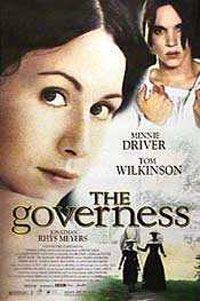
Sandra Annette Bullock is an American actress and producer. She has received various awards and nominations, including an Academy Award and a Golden Globe Award, She was the world's highest-paid actress in 2010 and 2014. In 2010, she was named one of Time's 100 most influential people in the world.
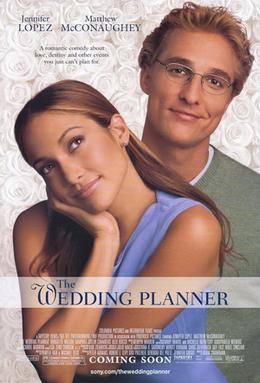
The Wedding Planner is a 2001 American romantic comedy film directed by Adam Shankman, in his feature film directorial debut, written by Michael Ellis and Pamela Falk, and starring Jennifer Lopez and Matthew McConaughey.

Amelia Fiona Jessica "Minnie" Driver is a British and American actress, singer and songwriter. She rose to prominence with her break-out role in 1995's Circle of Friends. She went on to star in a wide range of films including the cult classic Grosse Pointe Blank, Gus Van Sant's Good Will Hunting for which she was nominated for both the Academy Award for Best Supporting Actress and a Screen Actors Guild Award, the musical The Phantom of the Opera, Owning Mahowny, and providing the voice of Lady Eboshi in Hayao Miyazaki's Princess Mononoke.

A governess is a largely obsolete term for a woman employed as a private tutor, who teaches and trains a child or children in their home. A governess often lives in the same residence as the children she is teaching. In contrast to a nanny, the primary role of a governess is teaching, rather than meeting the physical needs of children; hence a governess is usually in charge of school-aged children, rather than babies.

The Net is a 1995 American action thriller film directed by Irwin Winkler and starring Sandra Bullock, Jeremy Northam, and Dennis Miller. The film was released on July 28, 1995.

The Princess Diaries is a 2001 American coming-of-age comedy film produced by Walt Disney Pictures and directed by Garry Marshall. Loosely based on Meg Cabot's 2000 young adult novel of the same name, the film was written by Gina Wendkos and stars Anne Hathaway and Julie Andrews, with a supporting cast consisting of Héctor Elizondo, Heather Matarazzo, Mandy Moore, Caroline Goodall and Robert Schwartzman. The film follows Mia Thermopolis (Hathaway), a shy American teenager who learns she is heir to the throne of a European kingdom. Under the tutelage of her estranged grandmother (Andrews), the kingdom's reigning queen, Mia must decide whether to claim the throne she has inherited or renounce her title permanently.

Ever After is a 1998 American romantic period drama film inspired by the Charles Perrault fairy tale, "Cinderella". It is directed by Andy Tennant and stars Drew Barrymore, Anjelica Huston, Dougray Scott, Jeanne Moreau, Megan Dodds, Melanie Lynskey, Patrick Godfrey, Lee Ingleby, Richard O'Brien, Timothy West, and Judy Parfitt. Tennant, Susannah Grant and Rick Parks wrote the screenplay. George Fenton composed the original music score. The film's closing theme song, "Put Your Arms Around Me", is performed by the rock band Texas.
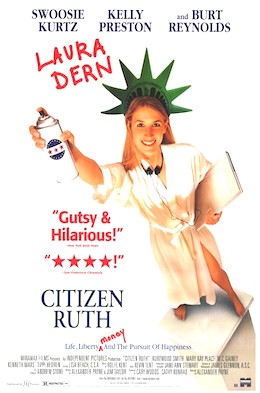
Citizen Ruth is a 1996 American satirical black comedy film directed by Alexander Payne, in his feature film directorial debut, and starring Laura Dern, Swoosie Kurtz, Kelly Preston, Burt Reynolds, Kurtwood Smith, Mary Kay Place, Kenneth Mars, and Tippi Hedren. The film follows a poor, drug-addled, irresponsible pregnant woman who unexpectedly attracts national attention from those involved in the abortion debate. This film marked Kenneth Mars’ final theatrical film role.

Return to Me is a 2000 American romantic comedy-drama film directed by Bonnie Hunt and starring David Duchovny and Minnie Driver. It was filmed in Chicago and was released on April 7, 2000 by Metro-Goldwyn-Mayer. It was Carroll O'Connor's final film before his death the following year.

If I Had a Million is a 1932 American pre-Code Paramount Studios anthology film starring Gary Cooper, George Raft, Charles Laughton, W.C. Fields, Jack Oakie, Frances Dee and Charlie Ruggles, among others. There were seven directors: Ernst Lubitsch, Norman Taurog, Stephen Roberts, Norman Z. McLeod, James Cruze, William A. Seiter, and H. Bruce Humberstone. Lubitsch, Cruze, Seiter, and Humberstone were each responsible for a single vignette, Roberts and McLeod directed two each, and Taurog was in charge of the prologue and epilogue. The screenplays were scripted by many different writers, with Joseph L. Mankiewicz making a large contribution. If I Had a Million is based on a novel by Robert Hardy Andrews.

The Duchess and the Dirtwater Fox is a 1976 American Western romantic comedy film starring Goldie Hawn and George Segal, produced, directed and co-written by Melvin Frank. It is about an 1880s dance hall girl (Hawn) from San Francisco who steals a satchel of ill-gotten money as part of her plan to change her identity into an English governess and get a job with a wealthy family in Utah. She then has to elude the former owners of the money, the Bloodworth Gang, on a cross-country chase.

Pick a Star is a 1937 American musical comedy film starring Rosina Lawrence, Jack Haley, Patsy Kelly and Mischa Auer, directed by Edward Sedgwick, produced by Hal Roach and released through Metro-Goldwyn-Mayer, and filmed by Norbert Brodine. A reworking of Buster Keaton's first talkie, Free and Easy, the film is mostly remembered today for two short scenes featuring Laurel and Hardy.

Il grido is a 1957 Italian drama film directed by Michelangelo Antonioni and starring Steve Cochran, Alida Valli, and Betsy Blair. It received the Golden Leopard at the 1957 Locarno Film Festival.

The Duchess is a 2008 historical drama film directed by Saul Dibb. It is based on Amanda Foreman's biography of the late 18th-century English aristocrat Georgiana Cavendish, Duchess of Devonshire. She was an ancestor of Diana, Princess of Wales, where the quote ‘There were three people in her marriage’ in the promotional poster comes from. It was released in September 2008 in the United Kingdom. The film won the Academy Award for Best Costume Design, and was nominated for Best Art Direction.
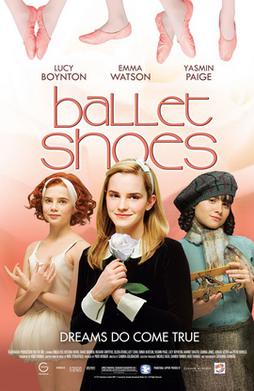
Ballet Shoes is a 2007 British television film, adapted by Heidi Thomas from Noel Streatfeild's 1936 novel Ballet Shoes. It was produced by Granada Productions and premiered on BBC One on 26 December 2007. It is directed by Sandra Goldbacher.

Hail Mary is a 1985 French avant-garde erotic drama film written and directed by Jean-Luc Godard. The film is a modern retelling of the story of the virgin birth. It was entered into the 35th Berlin International Film Festival.
Sandra A. Goldbacher is a British film director, TV director, and screenwriter.
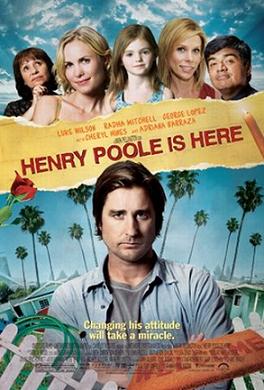
Henry Poole Is Here is a 2008 American comedy-drama film directed by Mark Pellington. The screenplay by Albert Torres focuses on a dying man whose religious neighbor insists the water stain on the side wall of his house is an image of Jesus Christ.
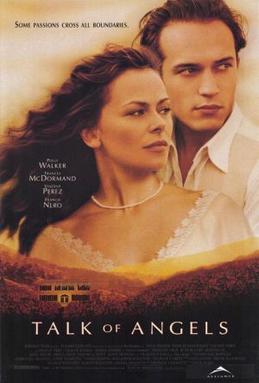
Talk of Angels is a film directed in 1996 by Nick Hamm, but not released by its production company, Miramax, until 1998.

Guilty of Love is a 1920 American silent drama film directed by Harley Knoles and written by Rosina Henley who adapted the play by Avery Hopwood. The film stars Dorothy Dalton, Julia Hurley, Henry Carvill, Augusta Anderson, Edward Langford, and Charles Lane. The film was released on August 22, 1920, by Paramount Pictures.
